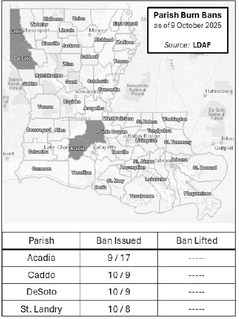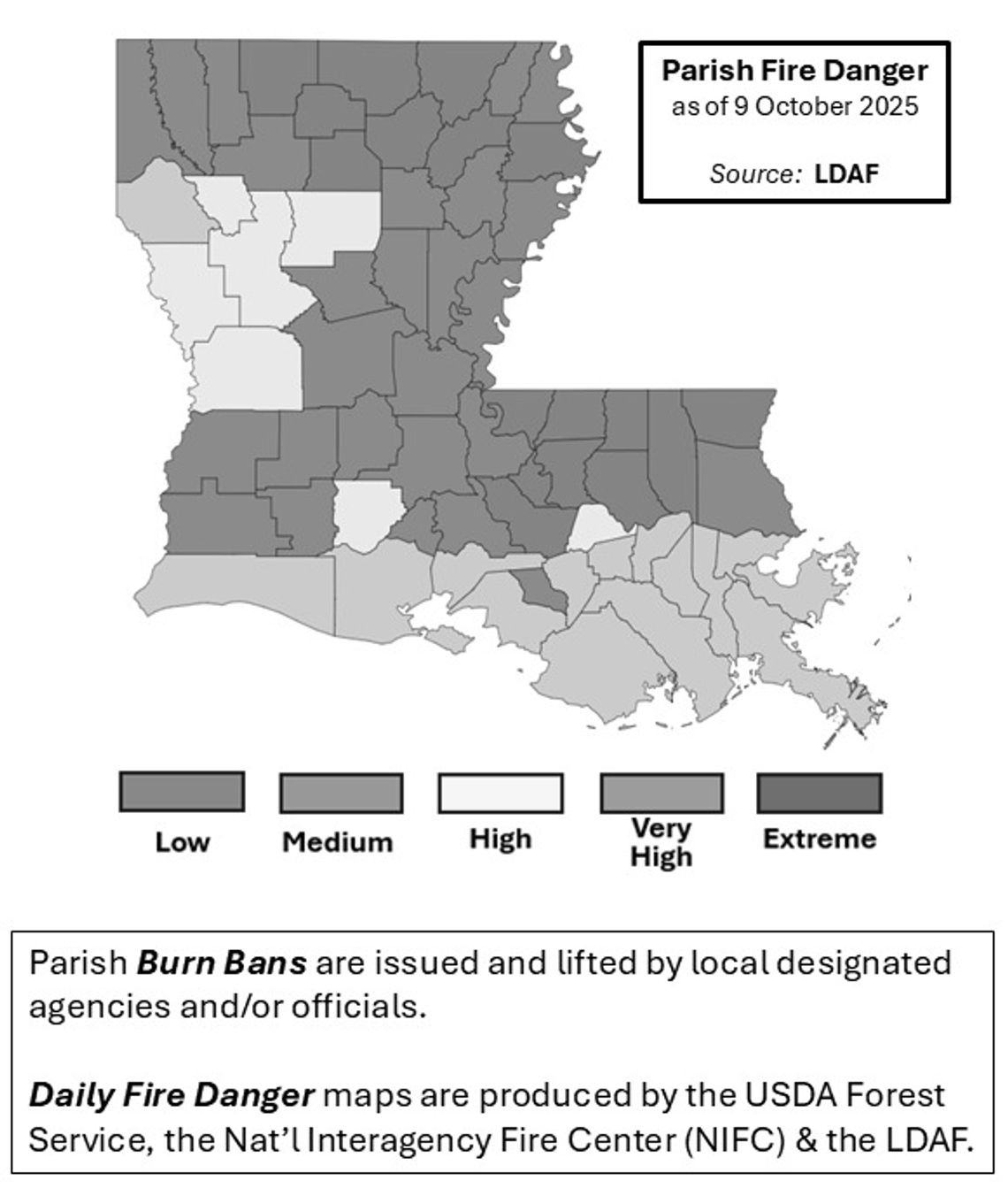Anthony Bailey
LSU AgCenter
Baton Rouge — When Jay Grymes was named the Louisiana state climatologist for a second time in 2024, it was a different job compared to the one he held more than 20 years before.
While he is once again the director of the Louisiana Office of State Climatology, which is housed at LSU, this time he is chiefly employed by the state through the Governor’s Office of Homeland Security and Emergency Preparedness, or GOHSEP. LSU and GOHSEP share his services as he bridges the weather and climate objectives of these two organizations.
He is working with the LSU AgCenter Louisiana Cooperative Extension Service to make weather and climate data more accessible and locally relevant.
Even with the passage of two decades and the change in employment structure, Grymes notes that the objectives remain the same: developing and delivering timely weather and climate information for Louisiana interests.
Information that once was difficult to not just find but make relevant on a local scale is now much more readily available. Still, much of the public does not know how to access it.
To combat this, Grymes, for the past several months, has been sending out weather updates every few days that contain assessments and discussions that are not routinely available to the average person. His updates can cover topics like the tropics, expected rainfall and drought, among others.
Grymes curates his emails based on what he thinks will be the most important or relevant to Louisiana residents and policymakers.
When he first started sending out his emails, it was mostly to help out a few colleagues who asked for Louisiana-tailored weather information from national sources like the National Weather Service and National Oceanic and Atmospheric Administration.
Grymes, as an experienced climatologist and after a lengthy run of being a local weatherman, was well suited for the task. He knows how to find and amalgamate the national resources and give the public easy- to- understand, relevant information. He then chooses the information he thinks is most relevant for the day or any trends that he thinks will be important in the near future. He also uses the newsletters to promote and showcase what the Office of State Climatology has to offer.
In a recent email, he gave a detailed map of how likely each parish in Louisiana is to have wildfires start. This information came from the Louisiana Department of Agriculture and Forestry, but not everyone knows how to find it in the electronic universe. Grymes and his office want to make weather-related products that focus on the Bayou State easier to access.
That’s what the office hopes to work on next. Grymes and his two colleagues, Nazla Bushra and Kyle Brehe, along with assistance from AgCenter extension agents, plan to develop trackers and online tools for weather and climate for every parish to expand on data from national sources, which may be less specific and detailed.
“Agriculture and natural resources agents throughout the state are inputting weekly information into a field conditions reporting site developed by the LSU AgCenter. These local, real-time assessments are used by Jay Grymes and his team to produce weekly statewide climatology reports,” said Tara Smith, AgCenter executive associate vice president and director of the Louisiana Cooperative Extension Service. “This collaboration ensures that farmers receive timely, locationspecific weather insights that help them make informed decisions about planting, irrigation and other critical aspects of crop and livestock management.”
For Grymes, the next step will be to get the public’s feedback on his services. He wants to ensure that he’s working “smarter, not harder” and using his expertise, time and resources to address the needs of agricultural clientele across the state in a timely manner.
“The general population has access to my information if they want it there, but what I’m really looking for is not only clients that use it, but I’m also looking for clients who say, ‘Hey, could you do this?’” Grymes said. “What I’m really looking for are for people that are dependent on weather and climate data to tell me what they need. What specifically would you like to see? And then we develop that.”
To be added to his newsletter mailing list, send Grymes an email at JGrymes@agcenter. lsu.edu



